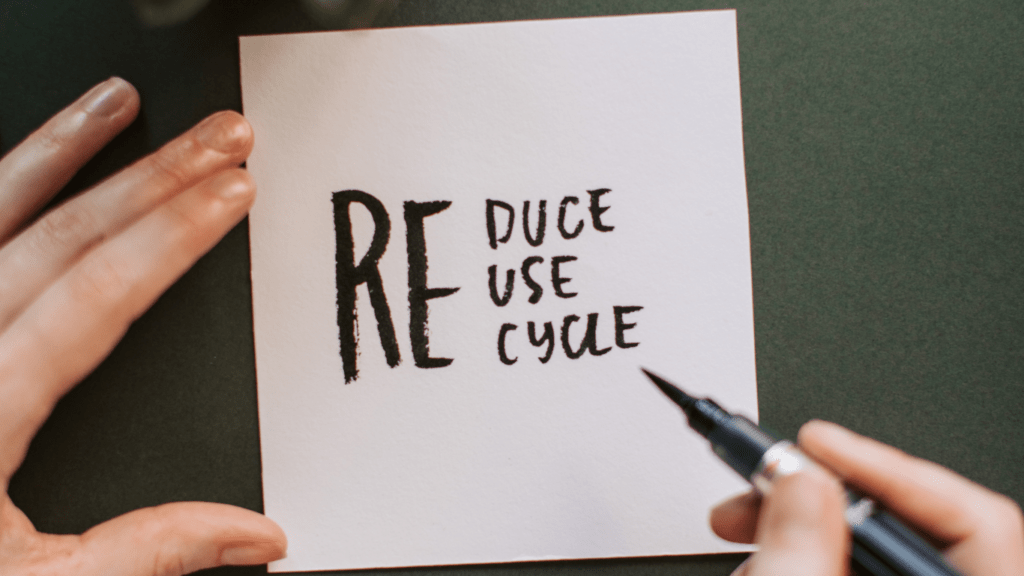The Importance of Recycling
Recycling plays a critical role in preserving the environment and ensuring a sustainable future. It’s essential to understand its benefits and the correct practices involved.
Environmental Benefits
Recycling minimizes landfill waste, reducing methane emissions that contribute to climate change. It also conserves natural resources by reusing materials like:
- paper
- plastic
- metals
For example, recycling one ton of paper can save 17 trees and 7,000 gallons of water. Moreover, it reduces pollution by cutting down on the need for raw material extraction, decreasing habitat destruction and soil erosion.
Economic Impacts
Recycling stimulates economic growth by creating jobs. In 2020, the recycling industry supported over 750,000 jobs in the U.S. It also generates revenue from selling recycled materials, such as aluminum cans and glass bottles, which can be repurposed for new products.
Additionally, recycling can reduce waste management costs for municipalities, as it decreases the volume of waste that requires disposal in landfills and incinerators, lowering overall expenses.
How to Recycle Properly

Knowing how to recycle properly ensures that materials get processed efficiently and effectively. By following some best practices, you can make a significant impact on sustainability.
Sorting Recyclables Correctly
Sorting recyclables correctly is crucial for recycling success. Ensure paper, cardboard, and clean plastics, glass, and metal items go into the respective bins.
Avoid mixing food waste with recyclables as contamination can lead to entire batches being discarded. Empty and rinse containers to remove residue. For example, wash out yogurt cups and soda bottles before recycling. Flatten cardboard boxes to save space and make collection easier.
Understanding Local Recycling Regulations
Local recycling regulations vary, so understanding them is essential for compliance. Visit your local government or recycling center’s website for guidelines.
Certain areas accept specific types of plastics and exclude others. For instance, plastic bags might not be recycled curbside but collected at specific store drop-off points. Some places offer electronic waste recycling, while others don’t.
Familiarizing yourself with these rules prevents mistakes and ensures materials get processed correctly.
Common Recycling Mistakes
Even with the best intentions, many people make mistakes when recycling. Identifying and avoiding these errors can enhance recycling efforts significantly.
Contaminating Recyclables
Contaminating recyclables is a prevalent mistake. Food residue, grease, and liquids can render recyclables unusable. For instance, pizza boxes often contain grease, making them non-recyclable.
Clean paper and cardboard for recycling by removing any food residue or liquid contaminants. Ensure plastic containers and glass bottles are rinsed before placing them in the recycling bin. Contamination can lead to entire batches of recyclables being discarded.
Not Recycling Common Items
Many people overlook common items that can be recycled. Aluminum cans, glass bottles, and paper are often discarded as waste.
Cardboard boxes, especially those from online purchases, should also be recycled. Collect and recycle everyday items like office paper, cereal boxes, and milk jugs. Always check local recycling guidelines as they vary by region.
Ignoring these guidelines can result in improperly sorted recyclables, which can complicate the recycling process.
Innovative Recycling Practices Worldwide
Innovative recycling practices offer unique solutions to global waste management challenges. Countries around the world are leading the way with cutting-edge techniques and systems.
Examples from Leading Countries
- Sweden: Sweden’s waste-to-energy program processes over 50% of household waste into energy. This approach not only reduces landfill use but also fulfills heating and electricity needs.
- Japan: Japan implements an extensive waste separation system, mandating over a dozen different categories for recyclables. Their meticulous approach has led to a recycling rate of almost 80%.
- Germany: Germany’s Green Dot system requires manufacturers to pay for packaging waste management. This financial responsibility incentivizes companies to reduce waste, leading to a recycling rate of 66%.
- South Korea: South Korea employs a volume-based waste fee system. Citizens pay for waste disposal based on weight, encouraging reusable packaging and rigorous recycling practices.
- Netherlands: The Netherlands excels with its circular economy initiatives. They prioritize reusing and remanufacturing materials, resulting in a recycling rate of 54% for municipal solid waste.
These practices showcase how strategic policies and technologies can enhance recycling systems globally.
 Ruby Miller - Eco Specialist & Contributor at Green Commerce Haven
Ruby Miller is an enthusiastic advocate for sustainability and a key contributor to Green Commerce Haven. With a background in environmental science and a passion for green entrepreneurship, Ruby brings a wealth of knowledge to the platform. Her work focuses on researching and writing about eco-friendly startups, organic products, and innovative green marketing strategies. Ruby's insights help businesses navigate the evolving landscape of sustainable commerce, while her dedication to promoting eco-conscious living inspires readers to make environmentally responsible choices.
Ruby Miller - Eco Specialist & Contributor at Green Commerce Haven
Ruby Miller is an enthusiastic advocate for sustainability and a key contributor to Green Commerce Haven. With a background in environmental science and a passion for green entrepreneurship, Ruby brings a wealth of knowledge to the platform. Her work focuses on researching and writing about eco-friendly startups, organic products, and innovative green marketing strategies. Ruby's insights help businesses navigate the evolving landscape of sustainable commerce, while her dedication to promoting eco-conscious living inspires readers to make environmentally responsible choices.
